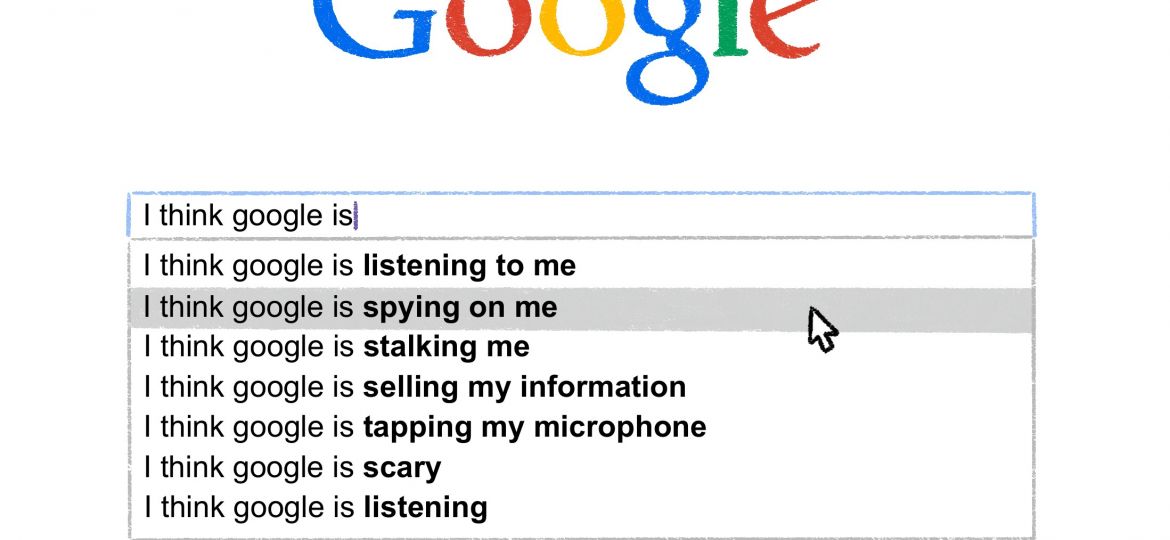
No one says, “Bing it.” No one says, “Yahoo it.” Not even the most fervent tree hugger says, “Ecosia it.” We live in the era of “Google it,” but for how much longer?
We’ve become so accustomed to the colorful six lettered logo that searching the web with anything else feels wrong, almost heretic. It’s a sensible opinion — Google puts a lot of effort into making their services fun, with a colorful appearance and the occasional “doodle for Google” that makes looking up song lyrics and celebrity birthdays into a more enjoyable experience. Using Bing, on the other hand, feels like a personality vacuum in comparison.
This bubbly attitude is a holdover trait from Google’s days as a scrappy startup, revolutionizing the internet experience in the early 2000s. It’s in its best interest that the company keeps that image strong, but it’s been a long, long time since Google was anything close to an underdog. Now this veneer of youthful enthusiasm seems like lipstick on a trillion-dollar pig. To the average person, Google has developed a cult of personality that ensures its supremacy in search functions and much more.
Google has also spent much of its resources ensuring contracts of exclusivity with the most popular manufacturers of the technology we use every day, which is why we find Google to be the standard option for nearly every piece of technology that we use, and those six colorful letters have become the defacto logo of the internet. This gives Google the ability to control who, and what, shows up at the top of everyone’s search list. The possibility for control is endless, and the avenues for revenue are even more lucrative.
In a refreshingly uncommon instance of bipartisan support, the Department of Justice has filed a lawsuit against Google for their monopolization of search.
“Today, millions of Americans rely on the Internet and online platforms for their daily lives. Competition in this industry is vitally important, which is why today’s challenge against Google — the gatekeeper of the Internet — for violating antitrust laws is a monumental case both for the Department of Justice and for the American people,” said Attorney General William Barr.
In the first move of a lawsuit that is likely to drag on for years to come, the Federal Government has taken an essential step: making clear the complaint against Google and starting the uphill battle in attempting to protect consumers from the long-unregulated business behavior of Big Tech.
However, this lawsuit also makes unbearably clear how far behind the times federal legislation is in terms of dealing with issues of the modern internet. Politicians are happy to pat themselves on the back for getting started, while ignoring the fact that they are treating the modern internet as if it reflects standard historical practices of commerce. It does not. A singular Google search is not analogous to a traditional product. The real value in search comes from the hordes of data that Google and other companies can aggregate and monetize, in a way, buying and selling the users themselves.
The government needs to understand the value of our data and push their lawsuit further. While Big Tech will resist every step of the way, it is in the best interest of all American citizens that the industry of data, not just search queries and advertisements, is reigned in and put under further federal scrutiny. If our message to these companies is to be made, it must be made loud and clear: American citizens deserve the rights to the privacy of their data, and the Federal Government will represent its citizens in protecting those rights under any circumstance.
While Google’s fun, colorful antics would have you believe in its altruism, the size and scope of its business model is insidious, and our government needs to come out swinging harder in the name of its constituents.
vorndr1@stolaf.edu
Justin Vorndran ’23 is from
Osceola, WI.
His major is English.

